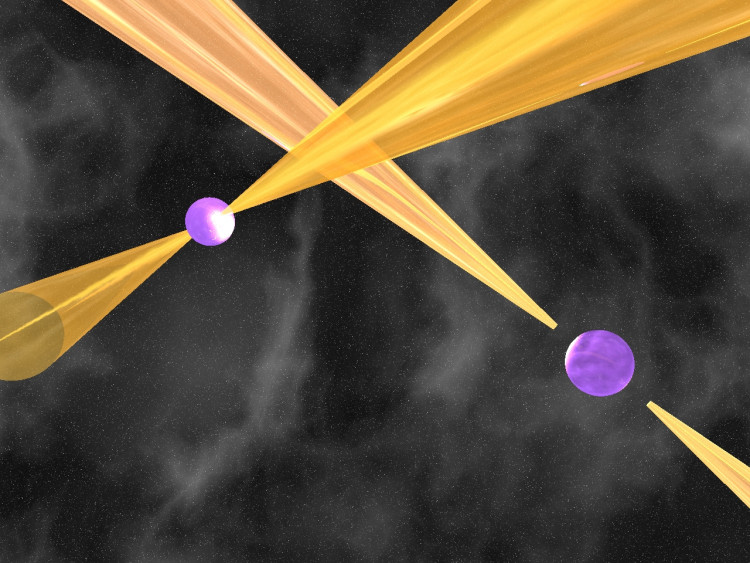Astronomers describe a rare class of astronomical object known as a black widow pulsar in a new study. The larger member of the duo appears intent on devouring and eliminating its smaller friend, much like the cannibal spider from which this sort of system gets its name. (Female spiders are typically larger than male spiders.)
This black widow, however, will not be decapitated quickly; the larger star appears to be killing its partner much more slowly. The larger star has pulled matter from the smaller star's surroundings over hundreds or thousands of years, while simultaneously bombarding the smaller star with strobing blasts of energy, pushing even more matter into space.
According to lead study author Emma van der Wateren, a doctorate student at the Netherlands Institute for Radio Astronomy (ASTRON), someday, the larger star could devour the smaller one altogether.
However, scientists want to put this unique system to use before then. The study authors hope that by monitoring the larger star's impressively stable pulses for sudden anomalies, this pulsar will let them identify uncommon ripples in the fabric of space-time known as gravitational waves.
"To detect gravitational waves, you need many, many very stable pulsars," van der Wateren said. "And unlike earlier black widow pulsars that have been discovered, this system is very stable."
Van der Wateren and her colleagues investigated 16 years of radio telescope data from this cannibal star system for their new paper. While the system is obviously a black widow pulsar, the team was startled to discover that it lacked a few distinguishing features.
The star system has also never shown any timing anomalies - abrupt, minute variations in the timing of a pulsar's pulse compared to astronomers' forecasts - throughout the past 16 years.
"We have not detected gravitational waves in this way yet," van der Wateren said. "But I think we are coming close."
That is why the discovery of highly predictable black widow pulsars like this one is so significant, according to van der Wateren.
Black widow pulsars are rarely viable candidates for gravitational wave detection because they are temperamental due to radio eclipses and timing abnormalities. However, J06102100 could be an exception - and the fact that it exists suggests that there may be additional acceptable exceptions out there as well.
This black widow's cannibal bite, like that of its arachnid namesake, may serve a larger purpose in the end.
The study has been published Mar. 11 on the pre-print database arXiv.




